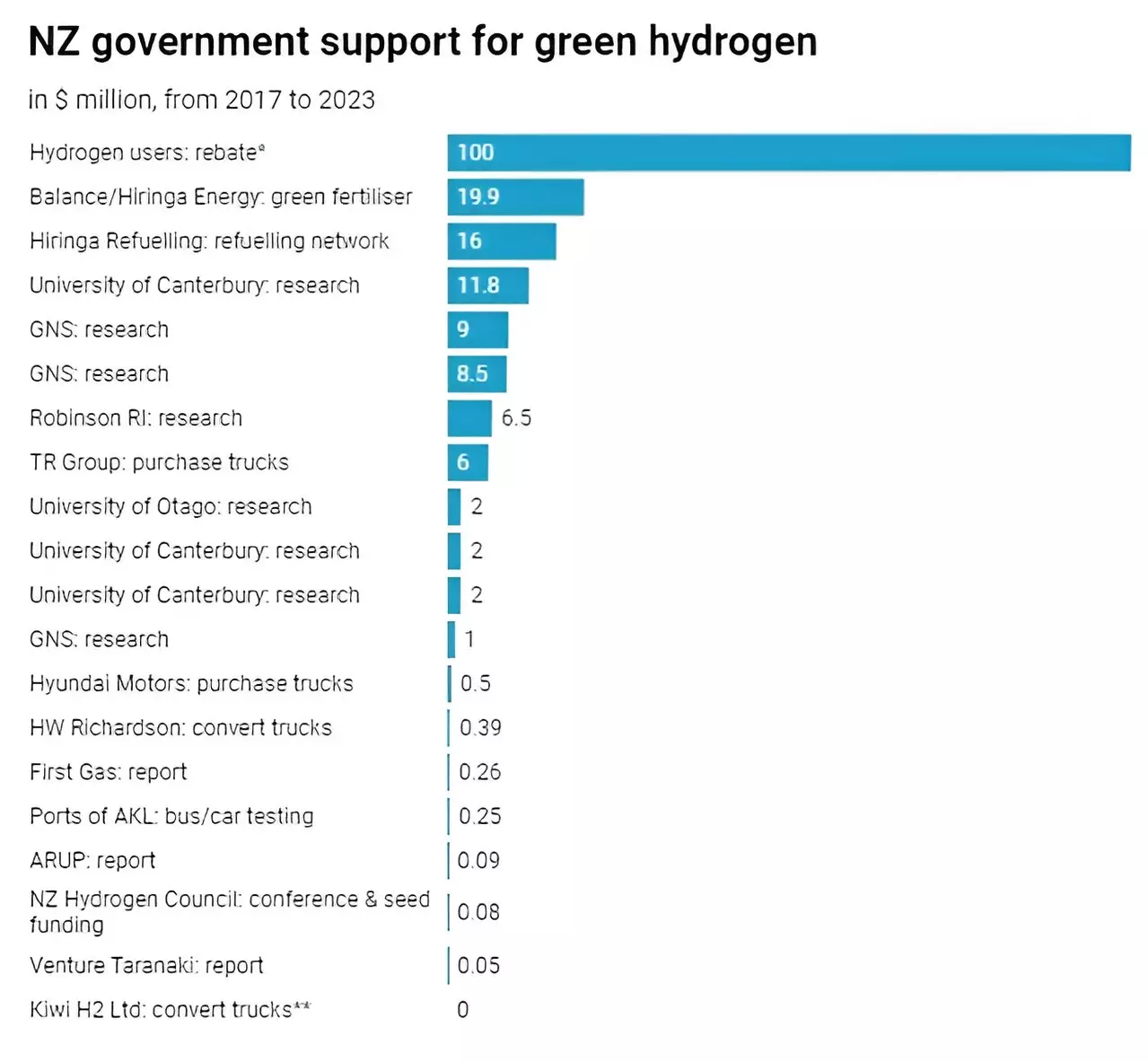The recent setback in the deal to bring hydrogen-powered trucks to New Zealand, coupled with the removal of government rebates for green hydrogen users, has cast a shadow of uncertainty over the country’s transition to green hydrogen. While the government has invested significantly in green hydrogen infrastructure and technology, critical voices have been largely absent from the debate. Despite the global enthusiasm for hydrogen as a sustainable energy solution, there are growing concerns about its viability and efficiency.
Government reports have painted a largely positive picture of green hydrogen in New Zealand, emphasizing its potential to reduce emissions and drive economic development. However, a closer look at these reports reveals a lack of consideration for the challenges and weaknesses associated with green hydrogen. The focus has been primarily on the opportunities presented by the technology, without a thorough assessment of its drawbacks.
While the government and media have championed green hydrogen as a key player in the country’s energy transition, there is a growing body of evidence questioning its effectiveness. Experts have raised concerns about the efficiency and cost-effectiveness of hydrogen compared to alternative technologies, such as battery electric vehicles. The preference for battery-run and fast-charging electric trucks over hydrogen fuel cells underscores the practical challenges facing green hydrogen in road transport.
To make informed decisions about the future of green hydrogen in New Zealand, we need to adopt a more nuanced perspective. It is crucial to recognize that hydrogen is an energy carrier, not an energy resource in itself. This distinction is essential in shaping policies and investments in the energy sector. Moreover, critiques of green hydrogen must be incorporated into the discussion to ensure a balanced and well-informed approach.
Government policy on green hydrogen should be based on independent advice and free from commercial interests. A reevaluation of the current approach to green hydrogen is necessary to prioritize applications with the highest potential for decarbonization and sustainability. This may involve shifting focus towards industries that can benefit the most from transitioning to green hydrogen, such as steel production, ammonia production, and methanol production.
The future of green hydrogen in New Zealand is at a crossroads. While there is significant investment and enthusiasm for the technology, there are valid concerns about its efficiency and cost-effectiveness. A more critical and nuanced approach is needed to navigate the uncertainties surrounding green hydrogen and ensure that New Zealand’s energy transition is truly sustainable and effective.


Leave a Reply